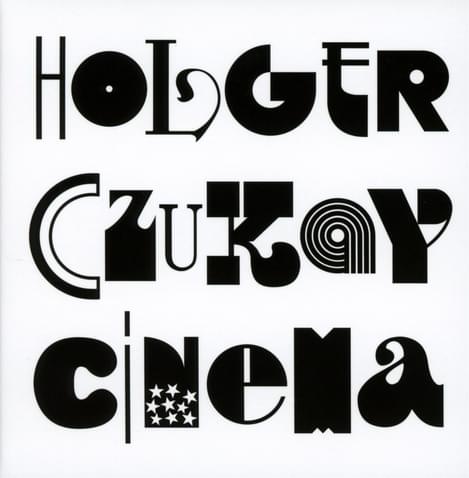Can bassit Holger Czukay's diverse solo adventures get the box set treatment on Cinema
"Cinema"

Having already studied with contemporary composer giant Karlheinz Stockhausen and dabbled in jazz before drifting towards the experimental outliers of rock music, Holger Czukay was a member of Can from 1968 to 1978 but remained musically active until his death last year at age 79. Yet it’s that decade as the bassist of one of the most influential, original and justifiably revered rock bands ever to come out of Germany or anywhere else on the planet that most music fans would associate Czukay with. Cinema aims to correct this by cherry-picking highlights from Czukay’s bulging portfolio as a prolific, playful and endlessly innovative solo artist and member of other musical projects: there’s not a Can track in sight.
Comprising of five discs and an almost overwhelmingly diverse range of styles, moods and approaches, Cinema certainly proves beyond any reasonable doubt that Czukay's talents weren't limited to being half of a rhythm section of a rock band. It's also remarkably resistant to any sort of a brief summary or description. It's truly mind-boggling to compute that the repertoire of one musician could find room for both, say, "Boat Woman's Song", a haunting, relatively conventional slice of modern classical music that gradually becomes warped through tape edits, and the wacky funk-pop of Czukay's solitary hit "Cool In The Pool", the creepily icy electronic warble of Conny Plank collaboration "Les Vampyrettes", the densely disorientating globe-trotting dub madness of "Trench Warfare" from 1982's Full Circle collaboration with Can's drumming genius Jaki Leibezeit and former Public Image Ltd bassist Jah Wobble, and the elegant electronica of previously unreleased Stockhausen tribute "Breath Talking".
Perhaps Czukay's most important job in Can was to edit, cut and splice together the band's sprawling jams in order to distil their magical brand of distinctly European funk/rock/otherness. His exit from the group was hastened by a burgeoning interest in weaving in random utterances from a bank of radios, telephones and other sources of extemporaneous - some might say cacophonic - sound effects to the band's music. Both interests feature prominently throughout Cinema. Cuts such as the wonderful "Persian Love" (off 1979's Movies, Czukay's most renowned solo record) seemingly tap into global reserve of found sounds to craft a truly global mash-up of influences well before drawing from non-Western sounds under the 'World Music' banner became common practice. If Can's music was notable for its minimalism and repetition, solo Czukay proves more of a maximalist, with epics such as "Hollywood Symphony" cooking up a thick mash of instruments, found sounds, samples and erratic but still somehow sensible jerks of the aural steering wheel.
Anthologies and box sets usually strive to provide a neat summary of their subject matter: this was/is what this artist/band is all about. What emerges from Cinema is an image of a musician who remained resistant to such categorisations to the end: experimental, curious and explorative, Czukay clearly didn't want to master just one style of music. He preferred to have a go at them all. Even when the results are messy (some of the light-hearted late 80's material hasn't dated well), Cinema proves the wisdom of this open-eared approach.
Get the Best Fit take on the week in music direct to your inbox every Friday

MF Tomlinson
Die To Wake Up From A Dream

Gwenno
Utopia

KOKOROKO
Tuff Times Never Last





